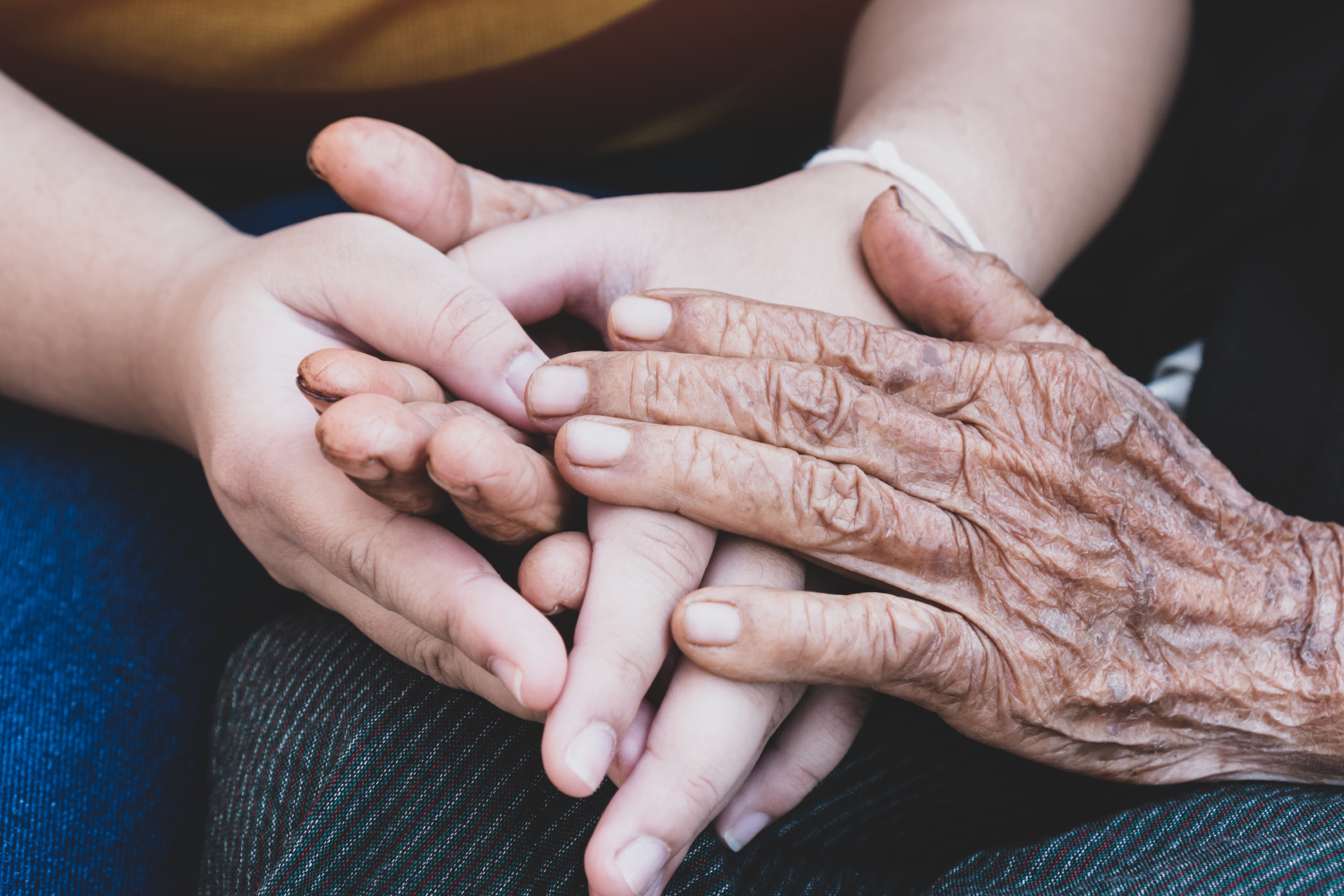
Dr. Eric Venn-Watson’s Highlights
Even one night of bad sleep can leave you feeling groggy the next day, but missing sleep repeatedly can be detrimental to your health. The far-reaching impact of sleeplessness affects virtually every aspect of your health, and attempting to “catch up” on sleep just doesn’t work.
Sleep is cumulative, and if you get less sleep on a regular basis, you’ll acquire sleep debt. While you might think the solution is a nap, that could be even worse for you in the long run. The solution is to find a way to sleep soundly on a regular basis.
Let’s explore the science of sleep and learn how we can get better sleep with an unsuspecting dietary ingredient.
Why Aren’t We Sleeping?
If you’ve been dealing with sleeplessness or issues with your circadian clock, you probably have a few suspicions why you can’t get enough zzzs. Blame it on stress, situational issues, or even a bad mattress, but chronic lack of sleep and a disrupted sleep-wake cycle usually have a bigger underlying cause. Two little-known suspects: obesity and diabetes.
Obesity
The link between obesity and sleeplessness is strong and dependent on one another. In other words, the less you sleep, the more likely it is for you to gain weight. The more excess weight you carry, the more likely it is you’ll suffer from insomnia.
Decreased sleep duration and poor sleep quality are among the sleep issues commonly found in people with excess adipose tissue, especially around the midsection. Sleep apnea is another problem that can cause the quality of your sleep to suffer when you carry excess weight, as your airway can become blocked.
In addition, decreased sleep usually means extra caffeine intake and less exercise, two factors that can affect your circadian rhythm and sleep drive, which we will discuss later.
Diabetes
Diabetics may have more trouble sleeping than non-diabetics. Unstable blood sugar levels can cause bouts of insomnia or wakefulness and make it difficult for you to stay asleep all night. If your diabetes isn’t well-managed, you may also find yourself experiencing anxiety or depression about your illness, too, which can also lead to sleeplessness.
The Health Effects of Poor Sleep
Not sleeping is more than just feeling exhausted and relying too heavily on caffeine. The long-term effects of sleeplessness involve serious health ramifications like:
- Unhealthy cholesterol levels
- Fast heart rate and high blood pressure
- Excess weight and weight gain
- Mental health disorders including depression and anxiety
- Increased risk of cardiovascular disease, heart attack, and stroke
- Increased risk of Alzheimer’s disease
- Poor liver health and higher occurrence of non-alcoholic fatty liver disease, or NAFLD.
Overall, your health will begin to decline proportionately to the amount of sleep you don’t get.
The Elements of Sleep Defined
Most of us are familiar with REM sleep, or “rapid eye movement.” However, REM sleep isn’t the only type of sleep we get when our heads hit the pillow every night.
There are two types of sleep that are essential for our wellbeing: REM, and non-REM (or NREM). On any given night, you’ll cycle through REM and non-REM sleep about four or five times, with varying brain wave patterns.
Non-REM
Non-REM sleep is made of four stages and makes up the majority of your night of sleep. Previously, it was thought that REM sleep was most important for us, but it’s now known that NREM sleep is equally, if not more important than REM sleep.
NREM sleep is important for keeping your immune system strong. It’s also when your body performs tissue repairs and regenerates cells. You’ll also build bone and muscle during NREM sleep, especially as a child.
NREM sleep is deep sleep, and as you age, you get less and less of it, primarily because your body stops growing.
REM Sleep
REM sleep only lasts for about ten minutes at a time, so you cycle through it relatively quickly. An interesting fact: your body is temporarily paralyzed while you’re in REM sleep.
REM sleep plays a significant role in your brain health, helping you file away information from the day and improving your mental concentration and cognitive function during your waking hours.
Your Body’s Sleep Regulators
Your body has two major sleep-regulating functions that help you fall asleep and stay asleep. These functions produce the desire for sleep and increase your ability to sleep soundly. They are your circadian rhythm and your sleep drive.
- Circadian Rhythm. Your circadian rhythm is an internal clock that reacts to external stimuli like light and time, cueing your body to release certain chemicals and hormones, like melatonin, and prepare for sleep. While everyone’s circadian rhythm is different, most of us will begin feeling tired and preparing for sleep by 7:00-8:00 p.m. (and even earlier in the winter when the sun goes down sooner).
- Sleep Drive. Your sleep drive creates the desire in your body to sleep. While circadian rhythm responds to light, sleep drive responds to sleep deprivation. As the day progresses and you use your energy stores, your sleep drive signals your body, creating a desire for sleep, much like your desire for food when you are hungry. Interestingly, your sleep drive can force you into sleep if you become exhausted enough for it to do so. This is why being in a constant state of exhaustion can be dangerous.
There are numerous factors that can interfere with your sleep regulators. For instance, a person who is blind may have trouble establishing a pattern of falling asleep regularly because they cannot respond to light and therefore could have trouble with their circadian rhythm.
Alcohol and caffeine also interfere with your sleep regulators, making it difficult for your body to turn off, and creating a half-life effect that could wake you from deep sleep. Using electronic devices before bed can also cause problems due to the blue light these devices emit.
Getting Better Sleep
Getting better sleep isn’t about just getting good rest every couple of nights. It’s about establishing a routine that allows you to sleep soundly on a nightly basis. If you’re struggling to get your beauty rest or find yourself taking melatonin or other sleep aids regularly, here are some tips to sleeping better.
Cut Back on Caffeine
Caffeine seems like the only solution to make it through a day after not sleeping, but your afternoon latte could be the reason you aren’t able to sleep at night. Caffeine has a half-life of about six hours, meaning six hours after consumption, half of it is still circulating in your veins.
This means if you drink a coffee at noon, the second half of the caffeine you drink may affect you around 6:00 p.m.
Limit Alcohol
It may seem like the perfect solution: a glass of wine to settle down at the end of the day and help relax you to sleep. However, alcohol metabolism could wake you up in the middle of the night, and drinking in excess could lead to even deeper sleep problems, like insomnia.
Eat Right and Exercise
Poor diets and a sedentary lifestyle not only pave the way to obesity, but they can also cause you to experience sleep issues caused by increased brain activity when you should be going to bed. If you find, for instance, that your body doesn’t get tired enough for sleep, exercise might help you expend some of the energy you have.
Elevate your cells. Elevate your self.
Get Fatty
It might come as a surprise, but adding an essential fatty acid to your diet could help improve your sleep (and your overall health).
Fatty15 is the first and only supplement that contains a pure powder, vegan-friendly C15:0, an odd-chain, essential, saturated fatty acid that research supports as a significant contributor to healthy sleep.
Here’s how it works:
- Your sleep regulators are governed by special receptors in your brain called PPARα receptors. C15:0 binds to those receptors, helping balance and regulate sleep and circadian rhythms, which helps you achieve deeper sleep so you can wake up feeling more refreshed.
- C15:0 also helps balance and control appetite, which can help you avoid unhealthy, excess weight gain.
Because C15:0 is primarily found in whole dairy products, you probably aren’t getting much of it in your diet. That’s where fatty15 can save the day. With just one capsule per day, you can take care of your sleep and promote a healthier you.
Fatty15 is science-backed, developed by a team of doctors and scientists who have dedicated their lives to helping others live healthier lives.
Sleep Better, the fatty15 Way
There could be a myriad of reasons why you can’t sleep, but adding fatty15 to your health stack is a decision that can help you rest easy. Fatty15 supports your health on a cellular level, giving you science-backed results you can see and feel.
Take the plunge and dive into more restful, rejuvenating sleep with the fatty15 90-Day Starter Kit.
Sources:
Association between sleep disorders, obesity, and exercise: a review|NCBI
Diabetes and Sleep: Sleep Disturbances & Coping | Sleep Foundation
https://www.ncbi.nlm.nih.gov/books/NBK19961/|NCBI
Sleep Basics: REM & NREM, Sleep Stages, Good Sleep Habits & More|Cleveland Clinic.org

Eric Venn-Watson M.D.
CEO, Co-Founder
Senior Scientist, Co-Founder
Eric is a physician, U.S. Navy veteran, and Co-founder and COO of Seraphina Therapeutics. Eric served over 25 years as a Navy and Marine Corps physician, working with the special forces community to improve their health and fitness. Seraphina Therapeutics is a health and wellness company dedicated to advancing global health through the discovery of essential fatty acids and micronutrient therapeutics.
You May Also Like...
We Can Be Better: The Why Behind The Fatty15 vs. Omega-3 Ad Campaign
You may have seen our latest ads comparing fatty15 to omega-3 supplements and wondered, “What is this all about?” To learn about our story behind our We Can Be Better campaign, read on!
An Unexpected Discovery
Aging is a complex biological process impacting health and longevity, requiring a distinction between chronological age, biological age, and psychological age to understand its nuancesThe Definitive Guide to Aging's Role in Human Longevity
- Choosing a selection results in a full page refresh.
- Press the space key then arrow keys to make a selection.


